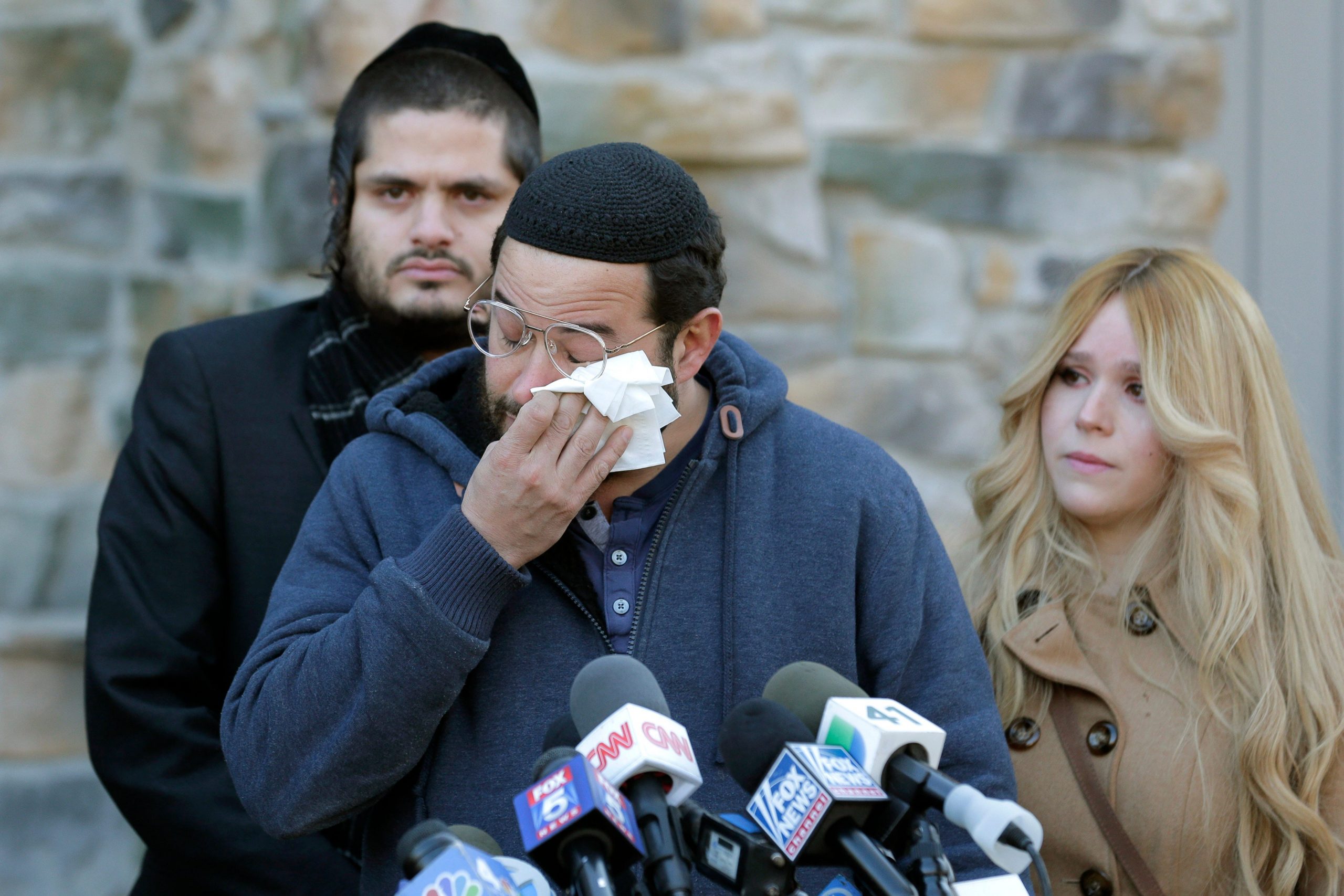- Orthodox and Hasidic Jews in a New York suburb say the coronavirus has led to increased hatred toward their community.
- While community leaders in Rockland County say they have gone above and beyond to spread social distancing messaging, they say that all Jews are being blamed for the non-compliance of some who don’t comply.
- The public health crisis has heightened tensions that have troubled the diverse county outside New York City for decades.
- Visit Business Insider’s homepage for more stories.
In normal times, thousands of mourners likely would have lined the streets of the New York hamlet of Spring Valley for the burial of Josef Neumann, one of five men brutally attacked in December by a machete-wielding man while observing Hanukkah at the home of a local rabbi.
But Neumann, 72, died in March, during the coronavirus pandemic.
So instead, a few dozen of the man’s family members gathered at his burial site on March 30 to pay their respects.
Jewish community leaders say the gathering was small, given the circumstances. Yet the funeral became subject to voyeurs who snapped photos of the man’s grieving children to share on social media in an apparent attempt to blame early coronavirus outbreaks in Rockland County on its large population of Orthodox and Haredi Hasidic Jews.
In the weeks that followed, members of the region's Orthodox community faced vicious backlash online, and in person, as people attempted to "play gotcha" by identifying families that they believed were in violation of social distancing guidelines, local rabbi Yisroel Kahan told Business Insider.
"You have one funeral where some people were grieving for a grandfather who was murdered; he was butchered because he was a Jew celebrating Hanukkah," Kahan said. "This person would have had tens of thousands of people at the funeral expressing grief and sorrow … There were maybe 25, 30 people there."
"Yes, it could have applied better diligence when it came to social distancing," he continued. "Yes, they should have worn more protection. But is this the time - when someone is burying their loved one who was butchered - to instigate?"
About an hour's drive north from New York City, Rockland County exceptionally diverse, both ethnically and religiously. It is a melting pot of immigrants, commuters, and the New York City diaspora.
While 62.6% of the county's nearly 326,000 residents are white, 18% are Latino, and 11% are African American, according to the most recent census.
In the highest per-capita rate of any US county, more than 34% of the county's residents identify as Jewish.
Among them are a large population of observant Orthodox Jews, who live primarily in the adjacent communities of Spring Valley and Monsey in the town of Ramapo.
When times are good, residents of these communities, who worship at more than 200 synagogues in the county, live alongside their secular neighbors with few issues.
During times of crisis or political strife, though, some Orthodox community leaders feel like they are used as scapegoats for larger regional issues.
Community leaders say that a holiday weekend in early March, paired with a rush to testing, led to a high number of diagnosed cases
In early March, weeks before the state of California issued the country's first stay-at-home order, the Jewish children of Rockland County were anxiously awaiting annual Purim festivities.
The holiday - which this year began on the evening of March 9 and ended on March 10 - is a time of togetherness, when friends and families gather to exchange gifts and food, with many dressing up in costumes.
At the time, coronavirus testing was still in its early stages in the US. A national emergency wouldn't be declared for another three days, and messaging around protection was still unclear. But Kahan - who is a medical liaison for the local health system - knew a crisis was brewing and canceled his family's holiday plans out of an abundance of caution.
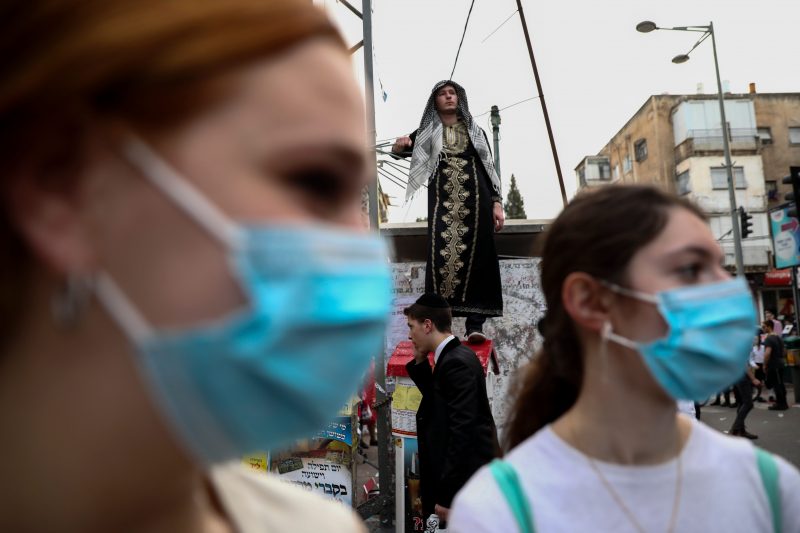
"I know that it was a real killer with the kids because all year they think about how they're going to dress up and who is going to visit," Kahan told Business Insider. "We were going to have a meal hosting friends and dignitaries, but I said, 'We're canceling it because I do not want to look back and say that it was on Purim we helped spread this."
Kahan, though, believes he was one of the few who took such action so early on in the crisis.
The first case of New York case of coronavirus had only been diagnosed on March 1 and, by Purim, life in Rockland county was, for the most part, still business as usual, Kahan said.
"That's probably when it spread, and when it spread very strongly, in the Jewish community," Kahan said.
In the weeks that followed, testing became more readily available and cases started cropping up around the state. By early April, Monsey and Spring Valley each had more than 1,000 confirmed cases - more than a third of the county's entire caseload at the time.
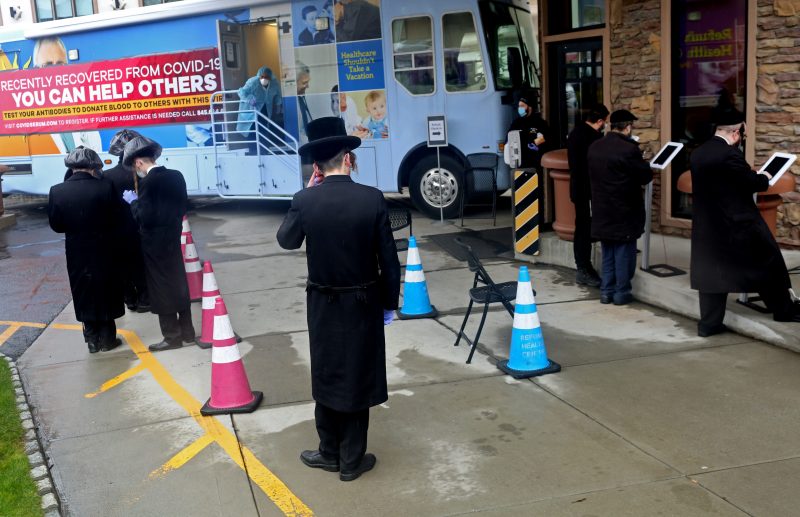
The outbreak, which at the time looked to be centered around the Jewish hubs of the county, prompted the county's executive Ed Day, and others, to call on the governor to issue a containment zone around the two villages.
In Facebook groups and other social media platforms, some residents attributed the high number of coronavirus cases to a failure of social distancing among the religious community.
Kahan and other Jewish leaders, though, said that social distancing measures were ordered only after outbreaks in their communities had already begun. Following Purim, they said, concerned residents were ahead of the curve to seek out testing.
Passover begins shortly after Purim, and people wanted to know if they needed to stay away from their families. With more people being tested, it's no surprise that there would be more positives, Kahan said.
"In communities where people have larger families, and with Passover coming, people wanted to get tested to know whether they had it and whether they were safe to be at grandma's and watch over them," Kahan said.
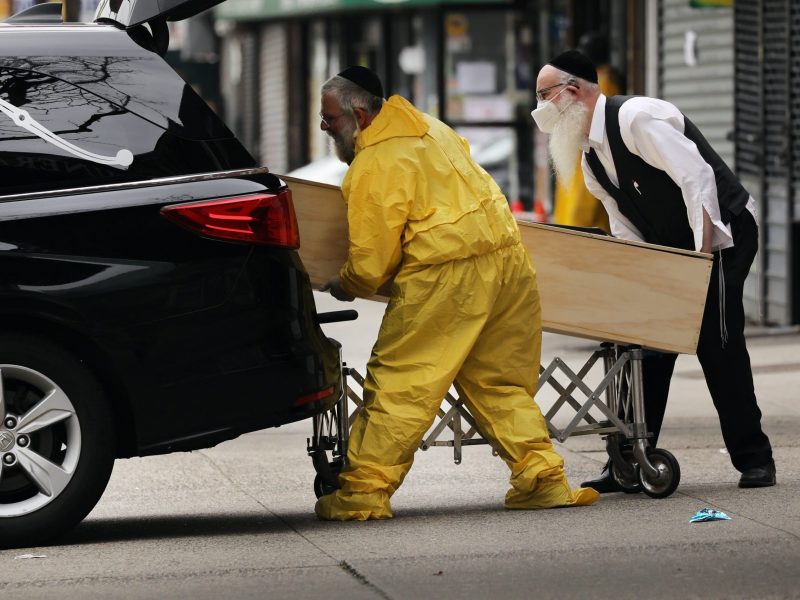
"Once those numbers were out there and it looked like Monsey was on the high end of the county, where Monsey is now on the lower end, you had the haters coming out of the woodwork," he continued.
As the pandemic continued to hit other parts of the country, New York Orthodox Jews who recovered from COVID-19 have also been showing up in the thousands to donate plasma which is used to treat coronavirus victims.
Dr. Michael Joyner, who is leading a study at the Mayo Clinic in the use of plasma to treat patients with severe Covid-19, told The New York Times that the Orthodox community has led the charge in terms of blood donation.
"By far the largest group is our Orthodox friends in New York City," Dr. Joyner told The Times. "I would be shocked if they were less than half the total."
Orthodox residents say they've faced discrimination and hate in recent months
Rockland County resident Yossi Gestetner, like Kahan, is adamant that the reason Monsey and Spring Valley saw high numbers early in the pandemic is because many residents rushed to be tested at the first sign of symptoms - maybe even more so than the general public. Gestetner co-founded the Orthodox Jewish Public Affairs Council, which works to end incorrect assumptions about the Orthodox community, and acts as an unofficial liaison between the Monsey and Spring Valley community and county officials.
The proof in his theory, Gestetner says, is that now that more testing is available, other villages have surpassed them in the rate of infections per capita. (Monsey and Spring Valley still have the highest number of total cases in the county.)
"People in the rest of the country are blaming New York for the nationwide problem, so then people in New York are trying to blame someone else," Gestetner said.
But those who don't understand that, he said, went out of their way to stalk, harass and discriminate against members of the community.
Early research from the Kantor Center at Tel Aviv University has already indicated that the coronavirus has inspired a spike in hate incidents against Jewish people around the world. Researchers seeing a rise in age-old anti-Semitic conspiracy theories that blame Jewish people for economic unrest and global disasters, the report says.
In recent months, there has been a flurry of reports around New York involving visibly Jewish individuals who say they've been the victims of discrimination.
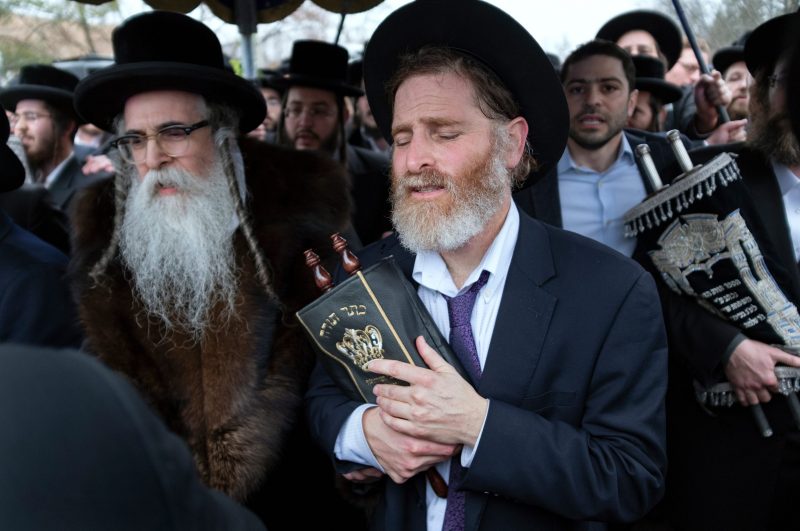
Some people have reported being denied service at businesses before the shutdown, Gestetner said.
In nearby Orange County, New York, a police officer has left his job after making a Facebook post about dropping a bomb on Kiryas Joel, a village that has a similar Hasidic and Orthodox population.
For the most part, the harassment has come in the form of vicious rhetoric online.
Some residents have used Holocaust imagery on Facebook to refer to Jewish community members. Many have described the Orthodox community as a "cult" or "sheep," and have accused them of spreading the virus and consistently disobeying laws.
To Rockland county's Jewish communities - which experienced two stabbings in 2019 - that's enough to be living in fear.
"This is how dangerous this is," Kahan said. "There could be one mad man that will take a machete and do something terrible. Of course, normal people don't do it, but if normal people fan the flames," it could happen again, he said.
Community leaders have emphasized the importance of social distancing, but say they can't control everyone
Gestetner and Kahan are among many Jewish community leaders who have been spreading the message of social distancing through social media, they said.
For example, Agudath Israel of America, a group that represents numerous Orthodox sects, has been calling for people to adhere to health measures from the beginning of the pandemic.
https://twitter.com/LeahZagelbaum/status/1241012376700424194?ref_src=twsrc%5Etfw
And for the most part, they said, families and synagogues have been adamant about following guidelines.
But of course, like in any community, there has been non-compliance, Kahan noted.
Over Passover, for example, eight Rockland County residents were arrested for violating social distancing guidelines after police found 30-50 men praying together, CBS News reported at the time.
There have also been illegal weddings, funerals, and several schools operating against shutdown orders, according to The Journal News and other outlets.
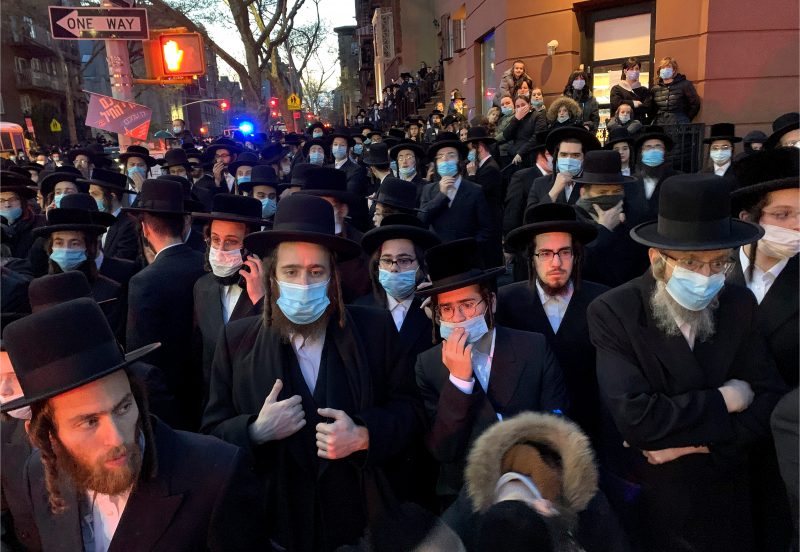
In the month of April, the Rockland County Department of Health fielded hundreds of reports for a lack of social distancing in the town of Ramapo, which includes Monsey, Spring Valley and the Hasidic village of New Square, but "more along the lines of dozens" for other towns in the county, according to John Lyon, spokesman for Rockland County Executive Ed Day.
"The difficult part is that there are certain parts of our population, the Orthodox and Hassidic community in particular, who because of the way they dress they tend to stand out more than the average person," Lyon said. "And that's not fair that they are noticed more, but it's a fact that they are noticed more. And that's reflected in the reports that our Department of Health gets."
"We are seeing great examples within the Orthodox and Hassidic communities, of rabbis and public advocates, who are going above and beyond and encouraging people to stay home," he added. "The hard part is, when you stand out in a crowd, you're going to get noticed."
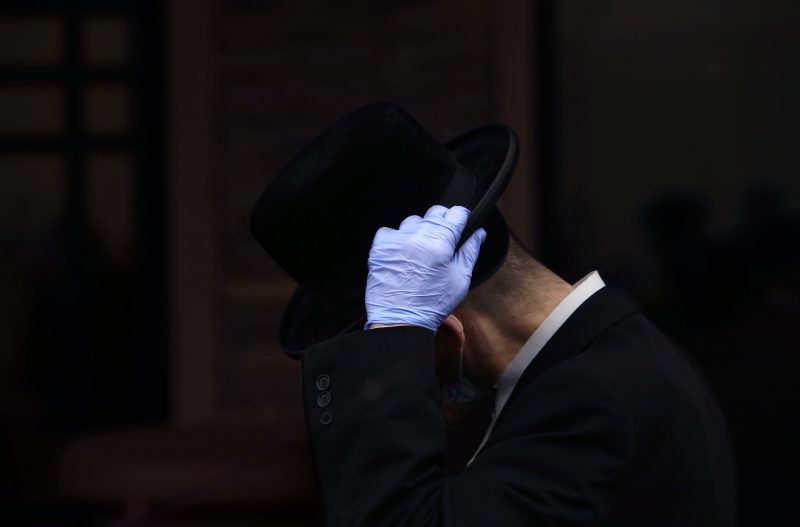
Kahan said it's not just that the community stands out more, but that people are actively looking for people not following the rules.
"I've driven by golf courses a few weeks ago with parks are full of people. You have churches all over the country that are packed and in defiance," Kahan said in late April. "You find one synagogue that's not in compliance and it got blasted all over."
Kahan said that in his neighborhood residents observed Passover by praying with one another from their front yards. While they did so, cars of people circled the neighborhood looking for people in violation, he said.
"I was on one porch and my neighbor on another, there was 75 feet between us. You couldn't throw a ball to the neighbor," he said. "There were individuals going around with cameras on the holidays."
Online, residents who blamed the high number of coronavirus cases to a failure of social distancing among the religious community posted hateful messages on Day's Facebook page. According to the Forward, some even called for patches with the letter "C" be sewn onto those infected with the virus.
Eventually, the comments on got so bad that Day himself called it out and urged people who spotted the hateful rhetoric to contact the county's Human Rights Commission, he told The Forward.
Alexander Rosemberg, the Deputy Regional Director of the Anti Discrimination League of NY and NJ, said that blaming Jews in times of crisis is nothing new.
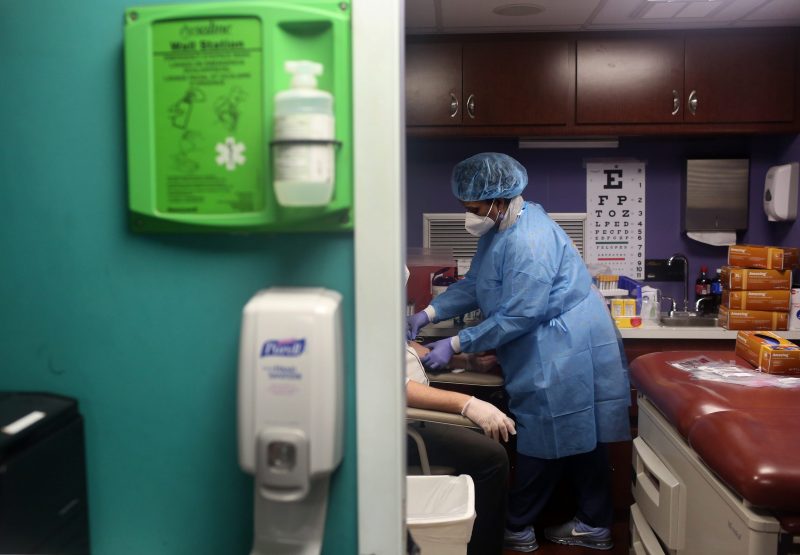
In Rockland County, there is a tendency to lump the entire Orthodox and Haredi Hassidic Jewish community together as one. But in reality, he said, it is a diverse group of varying beliefs and cultures.
"To say the Orthodox are X or the Orthodox are Y is absolutely not correct," Rosemberg told Business Insider.
When there are people in violation of laws, they should be called out as individuals, he said, and not grouped together.
"There are bad actors that should be called out, and every leader - political and religious - should be calling on the entire county to impose social distancing norms," Rosemberg said. "That same leadership should call out people who are lumping the entire community together."
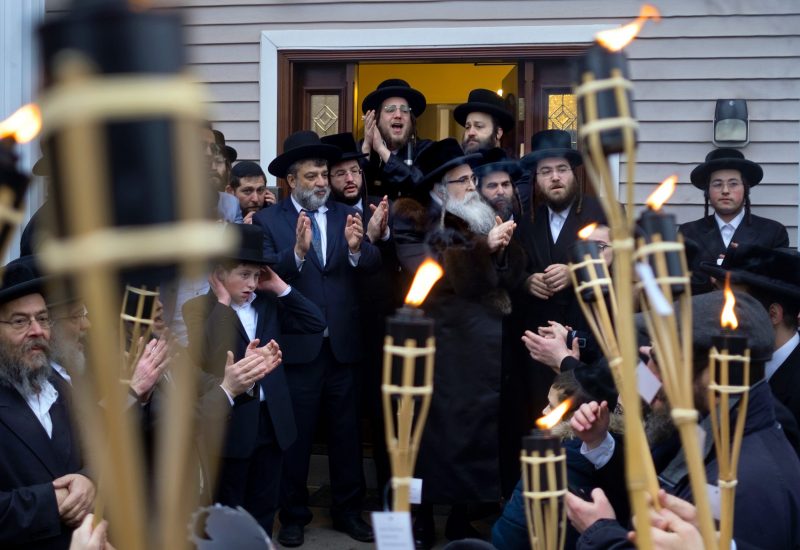
Gestetner said that there is a small percentage of bigots in the world, but most people have moved away from discriminating against or stereotyping groups of people based on their race, ethnicity, and religious beliefs.
He feels that the Hasidim, though, don't always escape that kind of treatment.
"When there disproportionate numbers of African-American deaths because of corona, there isn't one reporter in any outlet that suggests that anything is wrong with African-Americans as a community because of their behavior," he said. "It's about disparities, institutional racism, and poverty; which is fine because the idea to take people who are victimized of a problem and make it about them is unheard of bigotry."
"We are looking at a global pandemic that affects all countries, all walks of life," he continued. "Countries that don't have 10 Orthodox Jews have problems. There are problems in all communities."
This isn't the first time the Orthodox community has felt othered by their neighbors
Dating back to the 1950s, groups of "ultra-Orthodox" Jews seeking affordable real estate for their growing communities have flocked to Rockland for more space, according to Haaretz.
By 1961, the all-Hassidic village of New Square was founded, allowing the groups more freedom in practicing Jewish law.
As generations went on, and more families left Jewish neighborhoods in Brooklyn for Rockland County, the communities grew beyond New Square.
As they did, more requests for new yeshivas - Jewish private schools - synagogues, and housing projects bubbled up in local government.
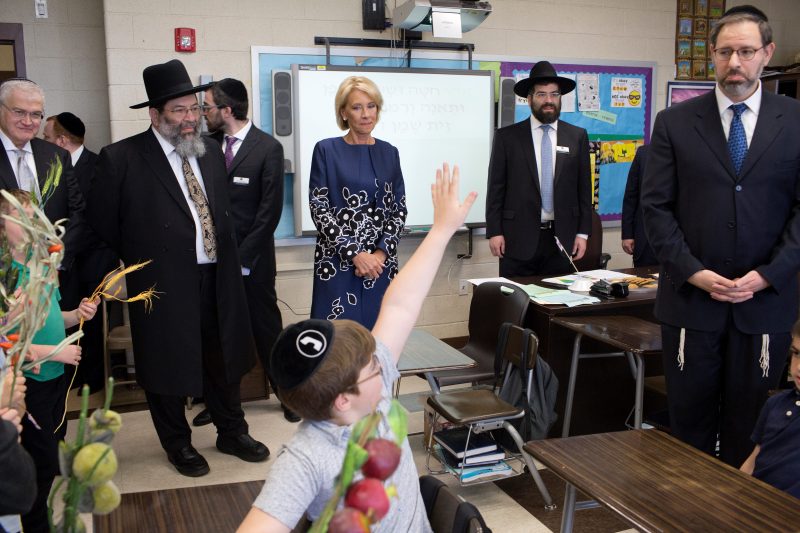
It is usually during these local debates over development, school budgets, and zoning that there is an uptick in harassment and discrimination against visibly Jewish Rockland residents, according to Rosemberg and Haaretz.
"There is a population in Rockland county that is unhappy about Orthodox and Hassidic Jewish organizations developing schools and other buildings," Rosemberg said.
County Executive Ed Day, a Republican, has been vocally opposed to such developments in the county. But approval of these projects generally falls to the local Town of Ramapo government, his spokesman, John Lyon, told Business Insider.
In 2019, when the Rockland County Republican Party produced a campaign advertisement widely criticized as anti-Semitic, Day called for its withdrawal, criticizing its tone but saying that its contents were "well-grounded."
During the ad, large text appears warning residents that "a storm is brewing" and "if they win, we lose."
It was paired with images of visibly Orthodox residents.
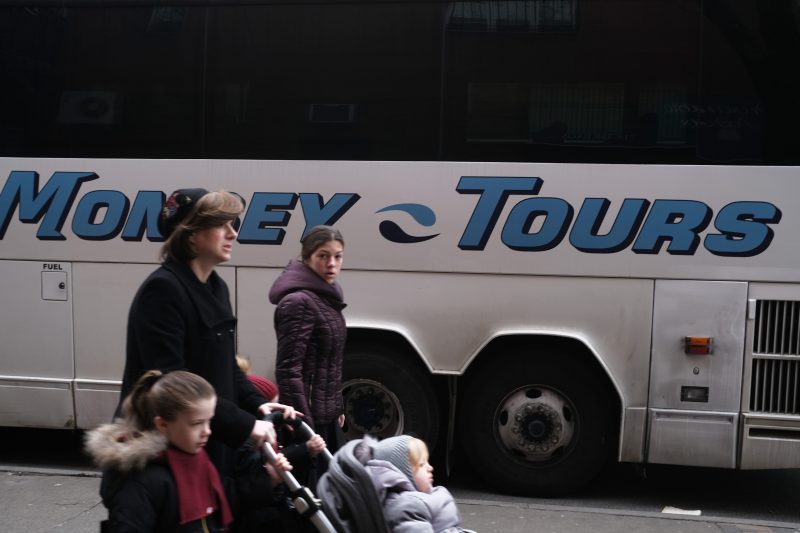
Lyon said that that video is one of the things that has recently inflamed tensions in the county. While overdevelopment is a problem, Lyon said, it's not something that should be blamed on a community of people, but rather the town government that allows it.
"I think in a lot of people's minds it's misplaced," Lyon said. "They're focusing on the people who moved here for the same reason that they did, or that their families did, from the city, the Bronx or out of Brooklyn 30, 40, 50 years ago."
"Everyone who moves to Rockland does so because they want a different kind of life. They want access to state parks. They want access to open space. They want to have better schools and a better community," Lyon added. "You can't fault the person who is moving here because they want their own apartment, or condo or house, they moved here for the same reason you did."
Despite differing opinions on issues of development, though, Lyon said Day and the county office maintain a uniquely collaborative relationship with the Orthodox communities, usually by communicating through liaisons like Gestetner and Kahan.
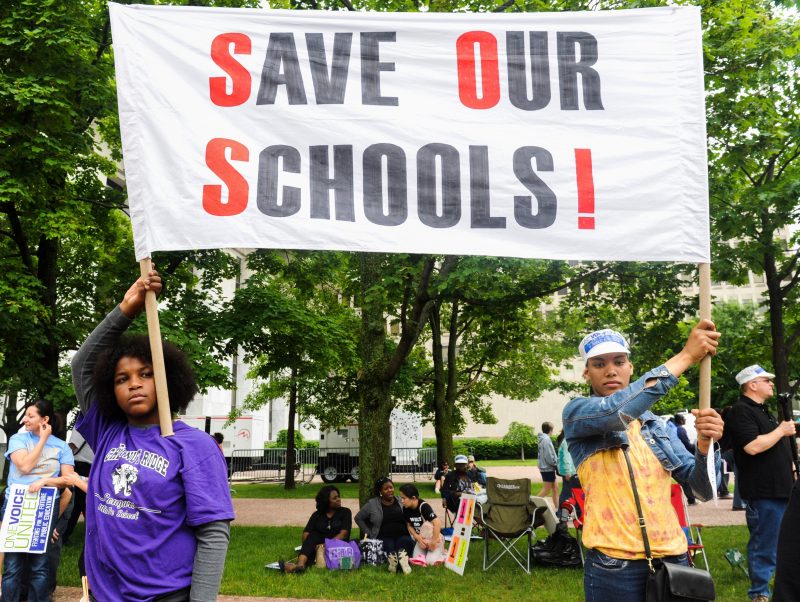
Last year, for example, when a measles outbreak sickened more than 300 Rockland residents - many of them in Spring Valley and Monsey - the county and community worked together to get messaging out.
"We had amazing support within the Orthodox and Hassidic communities to get that vaccination message out to everyone, and we saw nearly 30,000 people vaccinated in less than a year," Lyon said. "Incredible work was done with all of us working together."
Gestetner agreed that the measles outbreak response was a success, but said he wished he saw that level of collaboration for the coronavirus response.
While Gestetner acknowledged that Day tried to stop the hateful language on Facebook, he said that calling for a containment zone early on is what sparked the wave of discrimination.
"Throughout the measles program, Ed Day personally, his communications staff, the health department, they worked on the information front and the guidance front in a collaborative manner, and that's greatly appreciated," Gestetner said. "But for some reason, either because of ill will or because Ed misunderstood the fact of early testing showing early cases, maybe that's why he started on the wrong path."
As for whether the uptick in hateful comments is pushing members of the community further into social isolation, he said they can't let that happen.
"I myself sometimes feel uncomfortable, but do I don't hold back from doing what I need to do, I don't think I do, because the minute I do that, the bigots win," he said. "And the bigots are at the edge of society. The issue becomes that those bigots are very loud and then they have an influence on a large population that, at a minimum, have a misunderstanding about Orthodox Jews."
